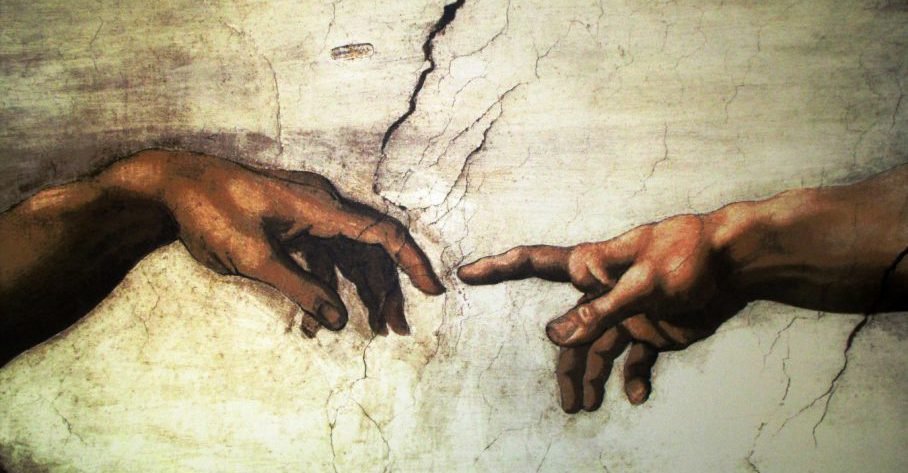It is common to think that Christians and Catholics believe the same things except with a few nuances. For example, it is a common knowledge that Catholics worship both Jesus and Mary, mother of Jesus, and Christians worship only Jesus Christ. However, in reality, the differences are even more significant than we think from a theological perspective, and it is essential to know what they are. Who knows this can be a perfect Segway to share the gospel of Jesus Christ. Let’s get right to it.
1. Pope is the head of the Church
It is in the Roman Catholic teaching that Jesus made Simon, whom he named Peter the “rock” of this Church. They also believe that Jesus gave him the keys of his Church and appointed him as the shepherd of the entire Church. The bishops continue the pastoral office of Peter and other apostles under the authority of the pope.
It seems they have come to that conclusion from Matthew 16:18-19. When I first read that passage, I have to admit that I agreed with them for a moment. It is common for anyone to come to that conclusion on your first read. The question is whether those teachings are in agreement with scripture.
Consider Acts 15:1-23, Galatians 2:1–14 we see all other apostles are equally involved and authoritative in the ministry of the gospel. In1 Peter 5:1–5, he wrote, “So I exhort the elders among you, as a fellow elder.” He considers himself as a fellow elder, not as a primal voice of the Church.
While Peter was central in the early spread of the gospel, the teaching of scripture, taken in context, nowhere tells us that he was in authority over the other apostles or the Church nor is it ever taught that bishop of Rome was to have supremacy over the Church.
2. Catholics worship Mary
Catholics believe that worship and adoration are due to God alone. Catholics do, however, worship Mary. In other words, they honor Mary with great reverence and devotion because she is the Mother of God.
Mother Theresa once prayed to Mary, asking to give a heart so beautiful and pure that I may receive Jesus in the Bread of Life. What does scripture say about this kind of prayer? Never in the scripture mentions or encourages this kind of prayer. They replace the priestly ministry of Jesus Christ with Mary. There is nothing wrong in desiring the heart and humility of Mary, but praying to her is an offense to God.
[one_half] In 1 Tim 2:5: “For there is one God, and there is one mediator between God and men, the man Christ Jesus…”. Praying to the saints goes against the scripture because we are making them mediators between God and man, diminishing Jesus’ role as the sole mediator.
There is one theme running through the text in the letter to the Hebrews, and it’s his superiority especially the perfect effectiveness of his sacrifice for sin and his immediate intercession at the right hand of the father for the people given to Him by the His Father. Isn’t that in Jesus Name we come to the father in our day to day prayers? If the worship is due to God alone, then it is expected to God alone.[/one_half][one_half_last][quote]No amount of indulgences or animal sacrifices can satisfy God anger for our natural rebellious state. Only the sacrifice of a spotless, sinless lamb, the Christ. [/quote][/one_half_last]
3. Catholics believe in Indulgences
Catholic doctrine teaches that there is a way to reduce or remove temporary punishment due to sin. and is called indulgence. To understand this, we need to understand the Catholic teaching of the two-fold nature of sin.
Roman Catholics believe in two kinds of sin,.mortal sin, and the other venial sin. Three conditions are essential for a mortal sin to exists, Grave matter, Full knowledge of the crime, and voluntary consent. Venial sins are any sins that meet one or two of the conditions needed for mortal sin but not all three.
Mortal Sin or Grave sin deprives us of fellowship with God and therefore, makes us incapable of eternal life, and the consequence is “eternal punishment.” Vineal sins weaken the soul with sickness but don’t kill the grace. In either case, sin is attached to their bodies and soul and must be purified. Believers can gain indulgences for themselves while on this earth or apply them to the dead. In simple words, they can purify themselves and convince God by doing good humanitarian work, saying a particular prayer, or visiting a specific place, self-punishment(penance) to avoid temporal punishment and even send a dead person to an eternal state by doing indulgences on their behalf.
These indulgences are obtained through the Catholic Church. Again, the question to ask is if the concept of indulgences is biblical. The answer is no. I say that because scripture doesn’t say anything about it. Most of the Catholic church doctrines are derived from tradition rather than scripture. Scripture teaches the forgiveness of sins is only through the blood of Christ. No amount of indulgences or animal sacrifices can satisfy God anger for our natural rebellious state. Only the sacrifice of a spotless, sinless lamb, the Christ. He has offered himself up as an atoning sacrifice and paid for our sin once for all.
4. Catholics believe in a purification after death
Catholic teaching teaches that those who saved by God’s grace are still imperfect and needs purification. This purification can happen on this earth as well as after their death in a place called purgatory, to attain holiness to enter heaven. This teaching is based on the practice of prayer for the dead mentioned in Maccabees, not the Bible. As you can see, Catholics believe Maccabees as their sacred scriptures. The concept of purgatory is foreign to scriptures, and it is contrary to everything scriptures says about salvation. To say that we must purify ourselves to step into heaven is to reject Christ’s atoning sacrifice. He suffered physical punishment on our behalf to satisfy God’s wrath and justice that is due to us. Our sin is fully covered by the righteousness of Christ, the merit that He earned by His perfectly obedient life.
5. The doctrine of justification Not Alone
One of the worst slanders against the Roman Catholic Church is that difference between Catholics and Protestants is the protestants believe in justification by faith, and the Catholics believe in justification by works, as if the Roman Catholic church didn’t believe in the necessity of faith. That is not correct. Because they do believe faith as a vital aspect of justification. But what’s missing in the Roman Catholic calculation regarding faith is the word, Sola. When Luther made the declaration Sola Fide- the justification is by faith alone, it means the faith is not only the initial step, but it is all you need. It is also the tone of the apostles. The instrumental cause of justification was a hot issue in the sixteenth century because of the protestant reformers, and the Roman Catholics theologians did not agree on the same things and still don’t. The Roman Catholic Church considers the sacraments of baptism and penance(confession) as the instrumental causes of justification because they are the vehicles through which justifying grace is given to an individual. In the Reformed View, the righteousness of Christ is imputed by faith to the believer. Question is what does scripture tell us? The Bible is shockingly clear, and the doctrine is relatively simple. This doctrine of justification is in many places of the Bible, but Apostle Paul presented it with clarity in his letter to the Romans. While Romans is a book which deals with complicated matters, but the message is clear.
None is righteous, no, not one.[3:10]
[We are] justified by his grace as a gift, through the redemption that is in Christ Jesus, whom God put forward as a propitiation by his blood, to be received by faith. [3:24–26]
Paul’s doctrine of justification shows clearly that all humans are sinners, helpless to save themselves, that only the perfect work of Jesus saves sinners. Only faith—not any sacraments—receives the saving effect of Jesus’ work; that God in Christ receives all the glory for justification; that this justification brings peace to the heart and mind of the believer.
These are few of many severe differences. As Christians, when we face these things, one question to ask yourself is, “Is this biblical?” We should carefully investigate these teachings, and if unbiblical, it is necessary to turn away from these teachings.







